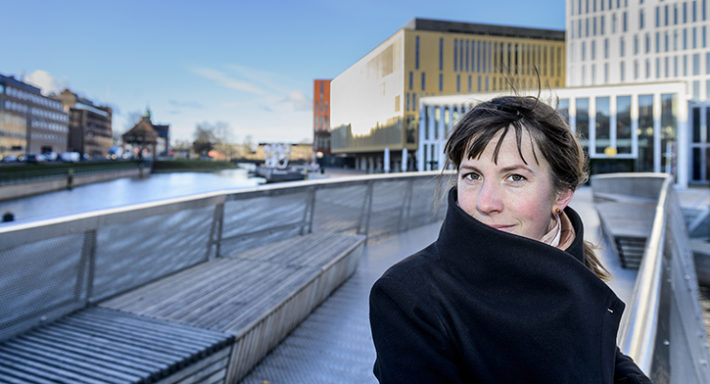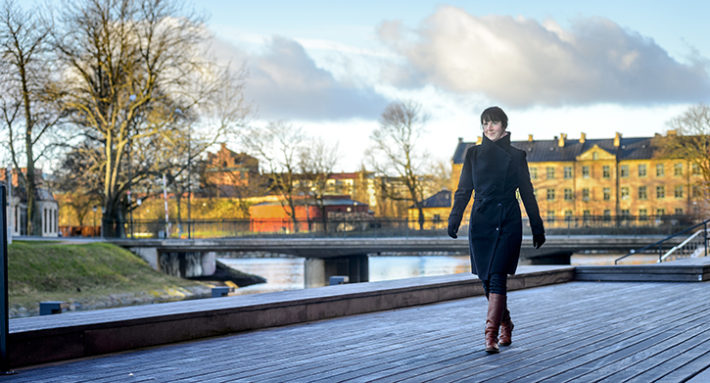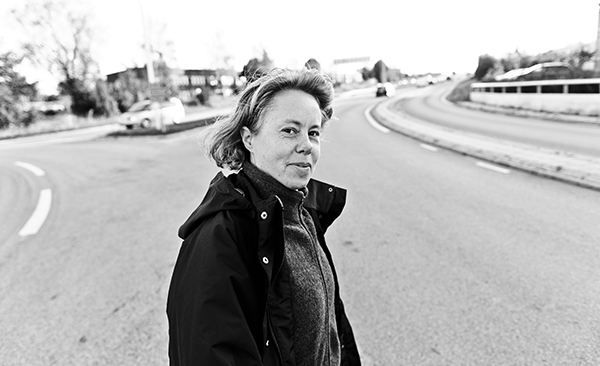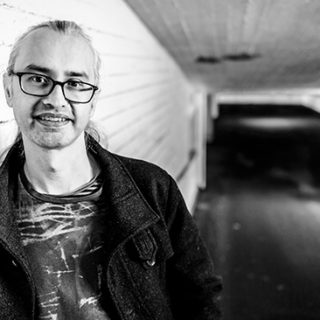Collaboration is key to the smart sustainable cities of the future
Climate change, a growing population and increased urbanisation place great demands on our cities. Meeting these challenges requires collaboration to develop smart cities. But what does a smart city really mean and how do we create one?
A smart city is a sustainable city. A city in which people want to live, where companies want to operate and which exploits resources in an optimal way. This includes everything from urban planning, energy consumption, infrastructure and information and communication technology, to social aspects such as integration, openness and a sense of community. The smart city is based on digitisation and smart digital solutions, observes Lena Neij, professor and director of the International Institute for Industrial Environmental Economics (IIIEE) at Lund University.
LENA NEIJ was recently appointed to the Government’s strategic cooperation group for smart cities, which is to contribute to achieving the government’s overall targets for reduced greenhouse gas emissions, higher employment and increased social participation.
She believes that cooperation is a key factor for the smart cities of the future. Cooperation is important to Lund University and permeates the majority of all the research projects at the International Institute for Industrial Environmental Economics.
“For us, cooperation with wider society is a natural part of almost all research projects, in particular with regard to research within the field of smart cities”, emphasises Lena Neij.
Lena Neij also highlights Lund University’s broad expertise within the field of sustainable urban development.
“We want this expertise to benefit society. The Urban Arena research network at Lund University brings together close to 200 researchers within the University, all of them active in the field. Urban Arena arranges annual open events to promote cooperation and functions as an important source of inspiration for new boundary-crossing cooperative research projects.”
At the International Institute for Industrial Environmental Economics, several ongoing projects contribute knowledge about smart, sustainable cities. One such project deals with energy efficiency and sustainable building, under the leadership of researcher Nora Smedby at the IIIEE.
Local initiatives for energy-efficient and sustainable construction
In her PhD project, Nora Smedby investigated how municipalities can cooperate with building contractors to promote more sustainable and energy-efficient* buildings and communities.

Nora Smedby, researcher at the IIIEE
Currently, individual municipalities have limited scope to set requirements for energy efficiency and sustainable construction that are higher than the national standards, even though the will is there. So municipalities have been forced to find different ways of getting building contractors to take greater responsibility and to raise their ambitions for more sustainable construction.
“In the City of Malmö, cooperation and dialogue with the building contractors, but also binding rules associated with the land allocation agreement, are important success factors in this work. For example, the building contractors were involved early on in the process and took part in the design of the area, something they considered to be attractive and important to them”, according to Nora Smedby.
The City of Malmö also created platforms for the exchange of knowledge and experiences and enabled contractors to apply for funding to maintain a higher ambition level with regard to energy efficiency.
Viewed from an energy perspective, the actual result of the cooperation between the municipality and the construction sector was lower predicted energy consumption for the buildings in the municipality’s initiatives.
Malmö’s initiative in the field also resulted in several newly established contacts and collaborations, both between contractors and with the municipality, bringing new opportunities to learn from one another.
“What many people bore witness to was that most investments in energy efficiency pay off, not only for the environment, but also for those who make the investment, insofar as the buildings have lower running costs, for example”, explains Nora Smedby.
Developing research collaborations between researchers and municipalities
Nora Smedby thinks that the chance to participate in and to study ongoing projects in the cities is useful to her as a researcher. For example, it can contribute to new research projects and, not least, to research articles through which she can share her acquired knowledge and experience with others, both researchers and municipalities, who could benefit from the findings.
In order for cooperation projects of this kind to work Nora believes that, as a researcher, you need a critical but constructive approach and you should not only see problems but also find solutions, and be willing to share them. Sometimes this can be problematic; within academia, one usually wants to run the research through the peer-review process of the scholarly journals before disseminating one’s results.
“For the municipalities, the challenge is mainly in daring to share their problems, rather than merely ‘marketing’ themselves, and to dare to receive criticism and improve”, says Nora Smedby.
Furthermore, she thinks it is also important for the municipalities to understand the conditions of the researchers’ work and their need to relate independently to the external cooperation partner.
“This means some give and take with regard to collaboration. As a researcher, one must show understanding for certain things and adapt to the circumstances”, says Nora.

Nora Smedby
According to Nora, the cooperation with external partners in society has been very important to her research and has contributed to keeping it relevant. She personally believes this will be extra valuable when are applying for increased autonomy and more direct government funding to universities.
Text: Cecilia von Arnold
Photo: Kennet Ruona
* Energy-efficient buildings are buildings which use less energy for operation and heating than conventional buildings. Buildings account for over a third of the total energy consumption in Sweden and Europe. Reducing the energy consumption through various energy-efficiency boosting measures in new and existing buildings is often proposed as the absolutely most cost-effective way of reducing greenhouse gas emissions internationally.
Facts
-
Urban Arena at Lund University
-
Currently, Lund University has Sweden’s broadest and most multidisciplinary research connected to sustainable urban development and urban sustainability issues. The research is conducted at most of the University’s faculties and covers ecological, social and economic aspects of the research field. All of this research is gathered within a unique platform, Urban Arena, with close to 200 participating researchers. The coordinator for Urban Arena is Lena Neij, professor and director of the International Institute for Industrial Environmental Economics (IIIEE) at Lund University.
-
Nora Smedby’s doctoral thesis
-
Local environmental governance: Assessing proactive initiatives in building energy efficiency
-
Research at Lund University on Smart cities







